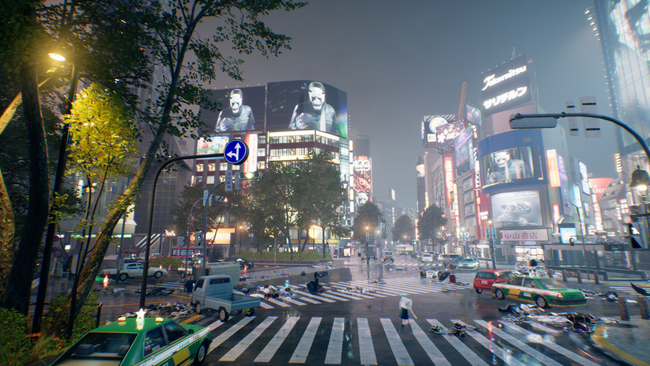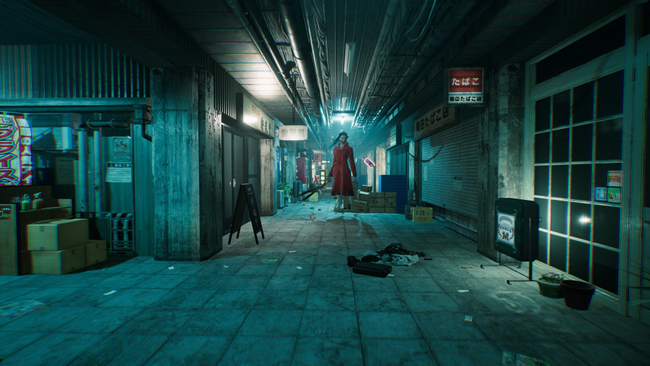
Ghostwire: Tokyo weaves delightfully stylish combat with a haunting vision of its modern cityscape
It feels like Bethesda’s E3 2019 presentation took place eons ago. It’s been three years since former Ghostwire: Tokyo creative director Ikumi Nakamura took the stage with an enthusiasm for the Tango Gameworks title that truly resonated. Even in its brief clips and explanations, the game was just charming as it was spooky in its bright and haunting vision of Japan’s capital city.
A lot has changed since then. Xbox Game Studios now holds parent company Zenimax, Nakamura left Tango, and the project saw a pandemic-era delay. However, despite the long road here, Ghostwire still looks like it’s maintained that strikingly distinct personality from its first impressions, albeit with a little more context. It’s by no means making the top of any most-anticipated strict RPG list, but Ghostwire oozes style and intrigue in a way that even bare-bones RPG lite systems hold appeal.
In a hands-off preview, separate from yesterday’s PlayStation demo, Tango shared footage from its action-adventure project that reignited my interests in a genre I don’t typically venture into. Our demo began with an explanation of a hellish rapturing, where almost all of Tokyo’s population disappears, leaving the city dominated by Yokai Visitors. The vanishing’s cause isn’t clear, but Akito — your protagonist, possessed by the otherworldly entity KK — is determined to figure out the cause and save his family.

There are others like Akito too, and with an event so catastrophic, they all know someone who’s gone. In the introduction to Ghostwire, producer Shinji Mikami explained Akito will help survivors left behind as they search for lost loved ones, as well as tasks he’ll have to juggle while chasing after the mastermind villain, Hannya.
From my time with it, Ghostwire looks like it’s telling a linear, set story with much of Akito’s personality and appearance determined from the beginning. Character customization options stick to smaller changes like clothing, but more RPG lite elements with skill systems and equipment come along as Akito explores Tokyo.
Those parts of Ghostwire are a window into something that feels genuinely captivating, even as someone who has spent these last few years forgoing most action games. Hosting KK means Akito wields paranormal powers, like Ethereal Weaving, and can call upon the elements to tame angry Visitors. Weaving different hand signs yields combinations imbued with elements like wind, fire, or water.
That’s where more of Akito’s customization and leveling options come in, too. While we were only given short glimpses into some of Ghostwire’s menus, there’s a system that distributes skill points between Abilities and Ethereal Weaving. Abilities included bits like improving Spectral Vision — the ability to see far off Visitors — while Weaving gets its own area of expertise to build upon.
It all looks like those surface-level bits we can argue will give it some level of intrigue for RPG fans, and Tango notes Akito’s kit can be tweaked depending upon your playstyle. Regardless, Ghostwire’s fluid hand weaving and flashy encounters with parries, quick elemental swaps, pushes, and pulls are subtle changes to the action-focused combat system I’ve long felt tired of. It’s all pretty damn stylish, too. Like in the way I could easily entertain myself attacking nothing for ages — Akito’s gesturing to conjure up attacks just looks incredibly elegant.
Ultimately, I can’t speak to how complex some of these systems get, but whether they do or don’t scratch any RPG min-maxing itch isn’t much concern. The world Tango Gameworks has crafted remains its biggest draw and one I’m anxiously hoping the studio nails. It’s a modern depiction of Tokyo, not a strange reimagining of a post-apocalyptic future. Ghostwire’s Tokyo takes all of the people out of the big city but doesn’t add in the decay that comes with time. The emptiness of a still lively cityscape is enough to make it both familiar and haunting.
The ghouls lurking about certainly don’t make it a comforting sight, either. While Mikami has noted several times Ghostwire is not a horror game, the preview certainly scared the hell out of me. It’s a difficult dance to balance the appeal, but it’s one I think it mostly accomplishes. There’s certainly too much for the absolute horror averse, but Ghostwire opts for more unsettling designs coupled with a protagonist who’s more than ready to brawl. I saw no jump scares, no copious amounts of blood or gore; it’s just eerie.

And for as much as I loved those elements, it’s probably the one thing I remain concerned about as we approach launch. Most open-world games struggle to maintain my attention, as I don’t find much appeal in exploring worlds sapped of personality due to their scope. Ghostwire’s preview footage is, of course, not spliced together to include only the highest energy sequences, like seen in a trailer. While I’m enchanted (and terrified) by an empty, modern Tokyo, I worry about how long these environments hold their appeal given the formula.
There was only one section that raised the concern, a moment in which Akito goes combing through an apartment complex to break down a barrier. It’s a small moment in comparison to the rest of the demo, but the meandering room-to-room transitions and same few corridors looked a lot less haunting in the presentation, despite KK’s insistence on the danger lurking there. However, most of the demo wasn’t dropping us into locations like this and instead enchanted with environments that felt energetic or lively with the paranormal.
All of the Yokai aren’t baddies, either. I found myself equally delighted by the small things in Ghostwire, like a talking cat convenience store clerk who sells goodies helpful to Akito and a sassy grandmother who cuts straight to the point. Some of those spirits will task you with missions in exchange for more power, and those quests look like the perfect opportunity for more lore-heavy exposition into Ghostwire’s haunted inspirations from Japanese folklore. Even the creature you share a body with, KK, continues to entertain with his constant stream of internal banter.
Ghostwire never claims to be anything other than an action adventure game, but even from a stricter RPG lens, there’s plenty there that holds up well with those more tangential elements. How deep those systems run is hard to speak to from a short hands-off perspective, but there’s an emphasis in Ghostwire on crafting a rich, lore-heavy world that’s perfectly entertaining with personalities like KK and Akito. Ghostwire is still a visit to Tokyo I’m happy to make.